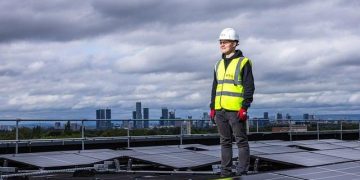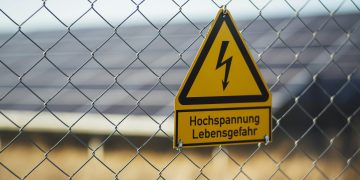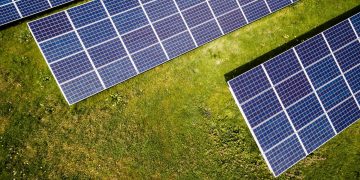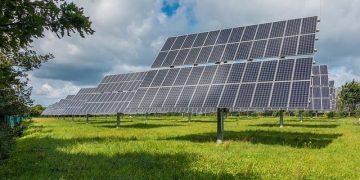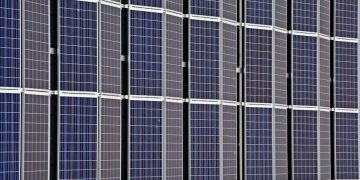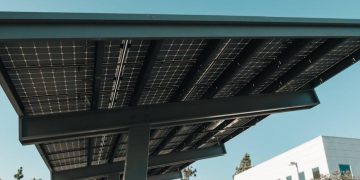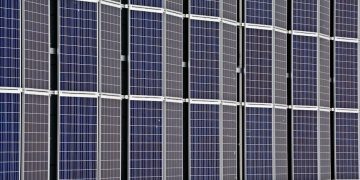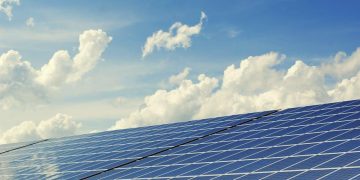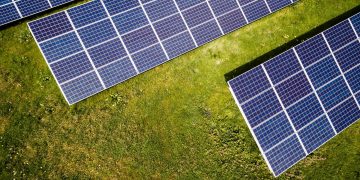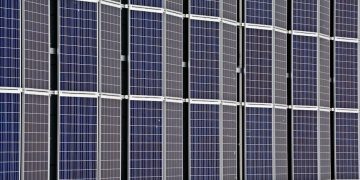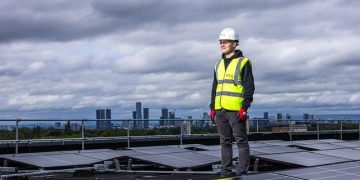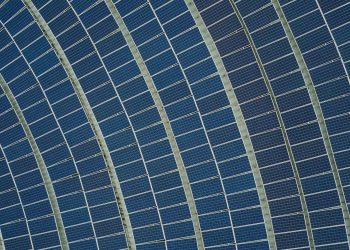In a world increasingly defined by the quest for sustainable energy, the solar market stands as a beacon of hope and innovation. As the sun rises each day, so too does the potential for solar technology to transform our energy landscape. But amid this surge of optimism and photovoltaic panels, a new player has entered the scene: artificial intelligence. Like a silent conductor orchestrating an unseen symphony, AI promises to fine-tune the complexities of solar energy systems, optimizing performance and enhancing efficiency. Yet, as we stand on the cusp of this technological integration, a question emerges from the shadows: Is artificial intelligence truly necessary for the development of the solar market, or is it merely an intriguing companion on a journey that was already well underway? This article delves into the heart of this question, exploring the potential roles, benefits, and challenges of AI in the ever-evolving solar industry, inviting readers to consider the balance between innovation and necessity in the pursuit of a brighter, cleaner future.
Harnessing AI for Solar Growth
In the evolving landscape of renewable energy, artificial intelligence (AI) has emerged as a pivotal tool, driving efficiency and innovation within the solar market. AI’s ability to analyze vast datasets enables solar companies to optimize energy production and distribution. Through advanced algorithms, AI can predict weather patterns, manage energy storage, and even detect faults in solar panels, ensuring systems run at maximum capacity. This not only enhances the reliability of solar energy but also significantly reduces operational costs.
- Predictive Analytics: AI can forecast energy production based on historical data and weather conditions, allowing for better grid management and energy allocation.
- Maintenance Optimization: AI-driven diagnostics can identify potential issues before they escalate, reducing downtime and maintenance expenses.
- Enhanced Design: By simulating different scenarios, AI helps in designing more efficient solar systems tailored to specific environmental conditions.
Incorporating AI into solar development isn’t merely a trend but a necessity for future-proofing the industry. As the demand for clean energy escalates, AI stands as a critical ally in scaling solar solutions to meet global energy needs efficiently and sustainably.
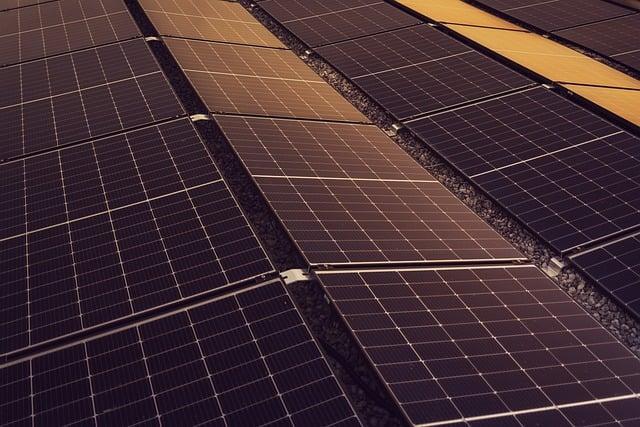
The Role of AI in Enhancing Solar Efficiency
Artificial Intelligence is revolutionizing the way we harness and utilize solar energy, making it more efficient and accessible than ever before. By leveraging AI algorithms, solar systems can now predict weather patterns, optimize energy storage, and manage grid distribution with remarkable precision. These systems are capable of learning from past data to improve their performance continuously, resulting in reduced energy waste and increased cost-effectiveness. This innovation not only maximizes the return on investment for solar installations but also contributes significantly to the global shift towards sustainable energy solutions.
- Predictive Maintenance: AI can foresee equipment failures before they happen, reducing downtime and maintenance costs.
- Enhanced Energy Storage: By analyzing consumption patterns, AI helps in optimizing battery usage, ensuring that energy is stored and used efficiently.
- Smart Grid Management: AI facilitates better integration of solar power into existing grids, balancing supply and demand effectively.
- Weather Forecasting: Advanced AI models can predict weather changes, allowing solar panels to adjust their orientation for maximum sunlight capture.
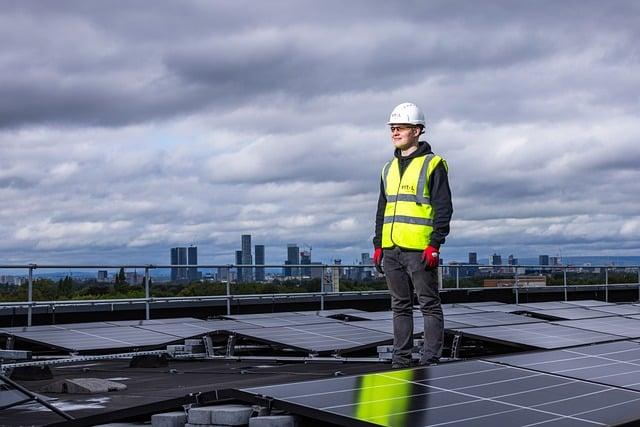
Strategic Integration of AI in Solar Technologies
In the rapidly evolving landscape of renewable energy, the integration of artificial intelligence into solar technologies has emerged as a game-changer. This fusion enables enhanced efficiency and predictive capabilities, crucial for optimizing solar energy systems. AI algorithms can analyze vast datasets to improve energy yield predictions, identify equipment malfunctions, and facilitate more efficient energy distribution. Machine learning models can anticipate weather patterns, allowing solar plants to adjust operations proactively, thereby maximizing energy capture and reducing wastage.
Furthermore, AI can transform the way solar energy systems are monitored and maintained. Key benefits include:
- Predictive Maintenance: AI can foresee equipment failures before they occur, reducing downtime and maintenance costs.
- Energy Optimization: By learning consumption patterns, AI can enhance energy distribution and storage, ensuring better alignment with demand.
- Grid Management: AI can help manage grid integration, balancing supply and demand more effectively to prevent overloads.
With these capabilities, AI not only boosts the operational efficiency of solar technologies but also propels the solar market toward a more sustainable and resilient future.

Recommendations for AI Implementation in the Solar Industry
To successfully integrate AI into the solar industry, companies should focus on several key areas. Data Management is crucial; harnessing vast amounts of solar data efficiently can lead to improved predictive maintenance and energy forecasting. By leveraging AI algorithms, businesses can identify patterns that were previously invisible, enhancing overall performance. System Optimization is another area where AI can make a significant impact, enabling the fine-tuning of solar systems for maximum efficiency and output.
Furthermore, AI can revolutionize Customer Experience by offering personalized energy solutions and proactive support. To ensure a smooth transition, companies should invest in Training and Development to equip their workforce with the necessary AI skills. Collaboration with tech partners and stakeholders can facilitate Innovation and Scalability, allowing for the seamless expansion of AI capabilities. Emphasizing these areas will not only streamline operations but also position companies as leaders in the rapidly evolving solar market.
In Conclusion
As we stand at the crossroads of technological innovation and environmental stewardship, the role of artificial intelligence in the solar market remains a topic of both intrigue and deliberation. While AI presents tantalizing possibilities for optimizing efficiency, reducing costs, and enhancing predictive capabilities, its necessity is not without debate. The path forward is not a binary choice but rather a spectrum of possibilities where traditional methods and cutting-edge technology can coexist and complement each other.
In this evolving landscape, the future of solar market development will likely be shaped by a mosaic of strategies, each tailored to the unique challenges and opportunities at hand. As stakeholders navigate this dynamic terrain, the ultimate question may not be whether AI is necessary, but how we can harness its potential alongside human ingenuity to illuminate a sustainable future. In this synergy, perhaps, lies the true power of innovation—a power that promises to propel the solar industry into a new dawn, radiant with possibility.

